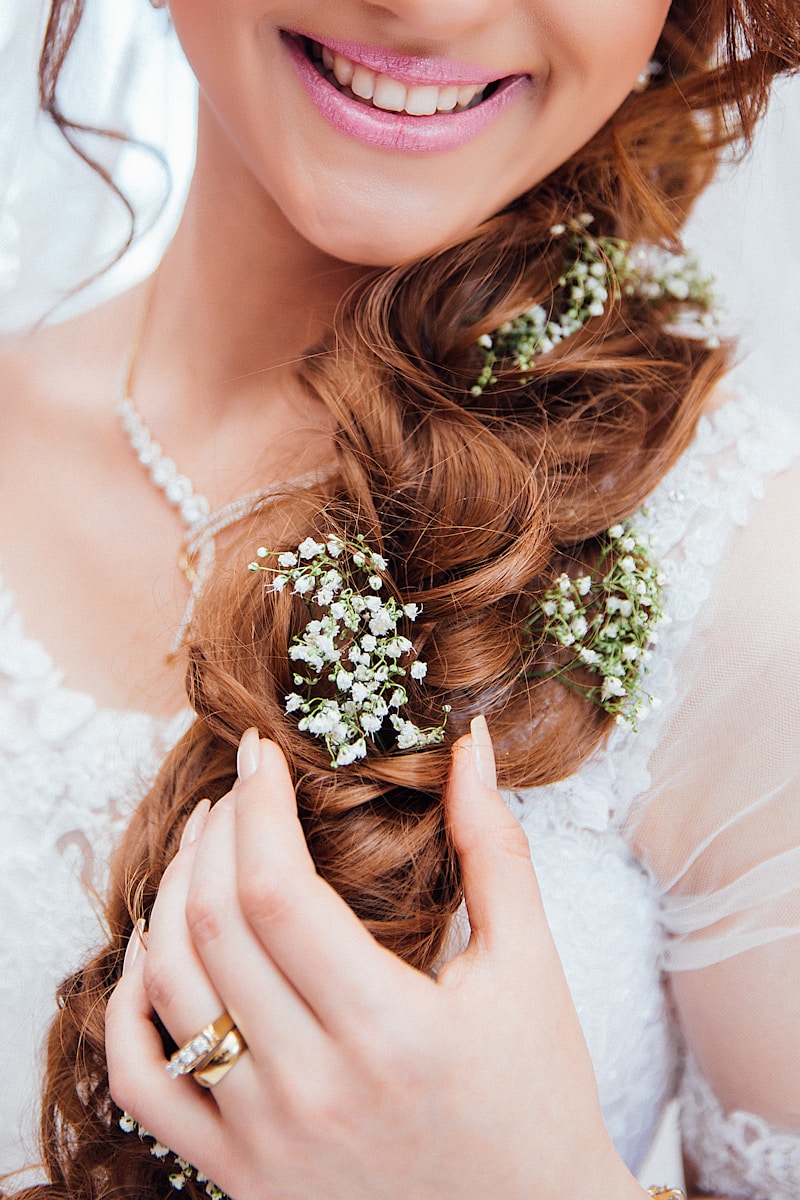Bridal Fabric Choices: A Comprehensive Guide to Selecting the Perfect Material for Your Dream Wedding Dress
Introduction
Choosing the right fabric for your bridal gown is a crucial step in creating your dream wedding dress. With an array of bridal fabric choices available, it's essential to understand how various materials affect the style, comfort, and overall aesthetic of your gown. This article will guide you through the most popular bridal fabrics, their characteristics, and tips for choosing the best one for your special day.
Understanding Common Bridal Fabrics
Bridal fabrics come in various textures, weights, and appearances. Here’s a breakdown of some of the most popular bridal fabric choices:
| Fabric | Description |
| Satin | A luxurious fabric that is smooth and glossy, ideal for structured gowns. |
| Lace | A delicate and intricate fabric often used for overlays, creating romantic designs. |
| Chiffon | A lightweight, sheer fabric that adds a dreamy quality to flowing dresses. |
| Tulle | A fine netting fabric perfect for weddings that want a whimsical or fairy-tale feel. |
| Organza | A sheer fabric that is stiffer than chiffon, allowing for beautiful volume in skirts. |
| Silk | A high-quality, breathable, and soft fabric known for its sophisticated appearance. |
Factors to Consider When Choosing Bridal Fabrics
1. Wedding Style
The fabric you choose should complement the overall style of your wedding. For a formal wedding, consider luxurious fabrics like satin or silk. For a beach or Rustic wedding, lighter fabrics such as chiffon or lace may be more appropriate.
2. Seasonality
The season in which you are getting married can significantly influence your fabric choice. Lightweight fabrics like chiffon and tulle work well for summer weddings, while heavier materials like satin are better suited for winter ceremonies.
3. Body Type
Selecting a fabric that flatters your figure is vital. For example, satin can provide structure and support, which is ideal for brides looking to enhance their silhouette, while chiffon can flow beautifully and create a softer appearance.
4. Comfort
Comfort is key on your big day. Ensure that the fabric you choose feels good against your skin and allows you to move freely, especially if you’ll be dancing or mingling with guests.
Bridal Fabric Options in Detail
Satin
Satin is one of the most popular choices for bridal gowns due to its elegant appearance and smooth texture. It drapes beautifully, providing a flattering silhouette. However, it can be heavier than other fabrics, so it’s worth considering the season of your wedding. If you're in a warmer climate, opt for a lighter-weight satin.
Lace
Lace adds an ethereal touch to any bridal gown. It can be used as an overlay, accent, or the primary material. With various styles available, such as Chantilly or Alençon, lace can evoke different feelings—from vintage romanticism to modern chic. Remember that lace may require special care in terms of cleaning and maintenance.
Chiffon
Chiffon is beloved for its airy, light feel. Often used in flowing A-line dresses, it creates movement and can be layered for added depth. Chiffon is perfect for a softer look and pairs wonderfully with lace detailing.
Tulle
Tulle is a versatile fabric often associated with ball gowns or whimsical designs. It can be layered to create volume or used sparingly for a delicate touch. As a lightweight fabric, tulle is excellent for summer weddings and adds a fairy-tale element to your dress.
Organza
Organza is similar to chiffon but has a crisper texture, providing more structure to your gown. It’s an excellent choice for dresses that require volume, such as ball gowns. Organza can also be layered to create beautiful effects in skirts or sleeves.
Silk
Silk represents luxury and sophistication, making it ideal for upscale weddings. It drapes elegantly and has a natural sheen that enhances the gown's beauty. However, it is more expensive than other fabrics and may require specific care.

How to Care for Your Bridal Fabric
Caring for your wedding dress fabric is essential to maintain its beauty for years to come. Here are some tips:
- Dry Cleaning: Always opt for professional dry cleaning for delicate fabrics like silk and lace after the event.
- Storage: Store your dress in a breathable garment bag away from light to prevent discoloration.
- Repairs: If any damage occurs, seek help from a professional tailor who specializes in bridal gowns.
Conclusion
Choosing the right bridal fabric is crucial in creating the wedding dress of your dreams. Your fabric choice will influence the overall look, feel, and comfort of your dress, so take your time to consider the various options available. Remember to factor in your wedding style, body type, and comfort when making your decision. Don’t hesitate to seek advice from experienced bridal consultants to make sure you find the perfect material that resonates with your vision for your special day.
In summary, whether you lean towards luxurious satin, delicate lace, or whimsical chiffon, each fabric has its unique charm offering something beautiful and special for every bride. Happy fabric hunting!